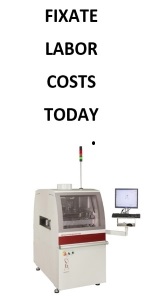In direct lobbying efforts over the past year, IPC has urged the European Union to amend the RoHS Directive to introduce rigorous scientific methodology to evaluate additional restricted substances and their alternatives.
Recently, IPC wrote to key European Parliament Environmental Committee leaders to support the adoption of RoHS Directive proposed amendments 197 through 203, which would promote the introduction of scientific methodology in alignment with the REACH (Registration, Evaluation, Authorisation and Restriction of Chemicals) regulation.
IPC remains concerned about Amendment 3a in the Final packages of compromise/consolidated amendments on RoHS. Under the section, “Consolidated package III on methodology for future restrictions,” Amendment 3a proposes a process that “lacks a rigorous scientific methodology and could therefore lead to additional substance restrictions that provide neither environmental nor human health benefits,” says Fern Abrams, IPC director of environmental policy and government relations.
IPC also opposes “Consolidated package IV on Annex III,” which calls for a priority assessment of the flame retardant TBBPA. While some BFRs, such as polybrominated biphenyls (PBBs), have been identified as toxic, restricted under the RoHS Directive and voluntarily withdrawn from the market, other BFRs, such as TBBPA, have been found to be safe for human health and the environment by both the World Health Organization and the European Commission Scientific Committee on Health and Environmental Risks (SCHER).
IPC continues to lobby to ensure the RoHS revision’s process reflects sound scientific methodology. IPC’s white paper, “Recasting the RoHS Directive: An Opportunity to Solidify its Scientific Basis in Support of Comprehensive Environmental Regulation,” advocates for a revised RoHS to be based on sound science and fully aligned with the REACH methodology for substance restrictions.
Members of the European Parliament Environmental Committee are scheduled to vote on Final packages of compromise/consolidated amendments on RoHS, on Wednesday, June 2.
IPC (www.IPC.org) is a global trade association based in Bannockburn, Ill., dedicated to the competitive excellence and financial success of its 2,700 member companies which represent all facets of the electronics industry, including design, printed board manufacturing, electronics assembly and test. As a member-driven organization and leading source for industry standards, training, market research and public policy advocacy, IPC supports programs to meet the needs of an estimated $1.7 trillion global electronics industry. IPC maintains additional offices in Taos, N.M.; Arlington, Va.; Garden Grove, Calif.; Stockholm, Sweden; Moscow, Russia; and Shanghai and Shenzhen, China.
 »
»





